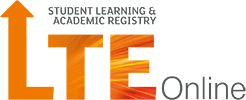What makes a good work-based learning student experience?
| 1. | Good partnership working |
| Close working with the partner (whether this is an employer; a representative body or the student/s themselves) ensures that the curriculum maintains its relevance. Good partnership working also facilitates the development of appropriate support structures for workplace mentors/tutors. Many programmes which utilise employers as assessors provide formal training and ongoing support. | |
| 2. | Making appropriate use of external reference points (NOS, SSC) |
| Curricula can be based on these reference points, or they can be used to inform curricula. Either way, this ensures that student learning is relevant and transferable. | |
| 3. | The use of learning contracts |
Recognising what students know already helps to build their confidence when engaging with HE. A learning contract is a short written agreement between students and supervisors that outlines:
|
|
| 4. | Putting the learner in the driving seat |
| Providing a range of ways in which the student can achieve the learning outcomes to suit their particular working context. Students on a programme may be situated in very different workplaces so it is important that learning outcomes are expressed so that they can be demonstrated in a variety of ways. For example, an outcome such as ‘Demonstrate selected abilities, skills and professional standards in complex situations’ enables students working in a range of settings to demonstrate how they have achieved that outcome. It also encourages students to be more innovative about how they apply their knowledge to specific contexts. | |
| 5. | Blended learning |
| Providing a range of ways for the student to access learning and support. Tutor support and access to mentors/University staff is a vital factor as it is likely that students’ learning environments will differ. It is therefore important to provide relatively easy alternative means of access for students, for example using an e-portfolio to enhance face-to-face interactions. | |
| 6. | Relevant assessment undertaken ‘just in time’ |
| Undertaking learning which can be immediately applied to the workplace. | |
| 7. | Creating a learning community |
| Peer support is recognised as an important element of the student experience. Work-based learning awards need to consider different ways students can contact and learn from each other. |
